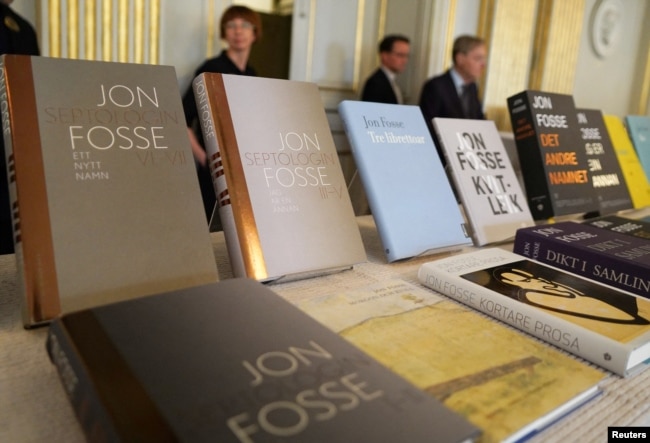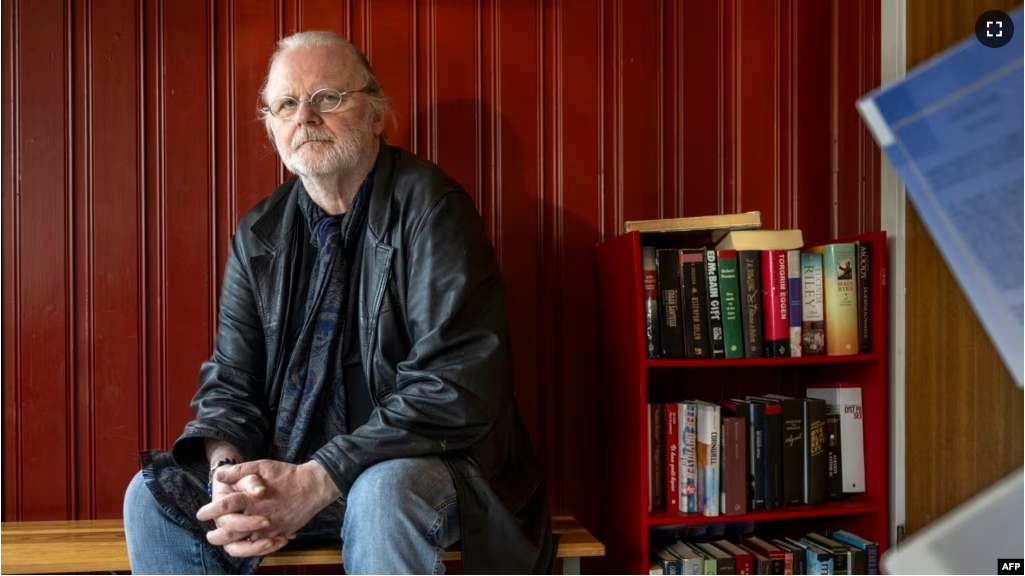The Swedish Academy awarded this year’s Nobel Prize in Literature to a Norwegian known for considering life’s “basic choices” in his 40 years of work.
Sixty-four-year-old Jon Fosse was first published in the 1980s and became well known in the 1990s. His works include a play called Someone Is Going to Come which was performed to praise in Paris in 1999. Later, he wrote a series of books called the Septology, which he finished in 2021. The last part of Septology, called A New Name, was a finalist for the Booker Prize in 2022.
Fosse created plays, books and children’s books. He also worked on a translation of the Bible into Norwegian. He is known for writing in the Nynorsk language, which is understandable to all Norwegians. But it is used by only 10 percent of the nation’s 5.4 million people.

Swedish Academy member Anders Olsson said Fosse’s work has had a “universal impact.” The Academy also called his work “innovative” and noted his ability to “give voice to the unsayable.” The group explained that his books discuss life’s “deepest feelings” about things like life and death.
Fosse said he had been thinking he might be awarded the prize for the last 10 years, but he was still surprised to get the phone call on Thursday.
He told a Swedish broadcaster: “I’ve been part of the discussion for 10 years and have…prepared myself for 10 years that it could happen.”

He told a Norwegian broadcaster he has no more prizes left to win. “Everything will be downhill from now on.” He noted that he started writing as a boy and his first work came out 40 years ago. “I don’t plan to compete with myself,” he said. The writer added he will celebrate the prize “calmly” with his family.
Fosse said 1969 Nobel literature prize-winner Samuel Beckett of Ireland influenced his writing style. Beckett wrote the play Waiting for Godot.
Guy Puzey is a teacher of Scandinavian studies at the University of Edinburgh in Scotland. He called Fosse’s writing “sparse” and said his “simple expressions…take on a lot deeper meaning…”
The Associated Press notes critics might call Fosse a “safe” choice for his “highbrow” writing only known to people in “small literary circles.”
The Academy has been criticized for being too centered on men from Northern Europe and North America. That includes criticism from Annie Ernaux, last year’s winner. Only 17 of 119 winners have been women.
Recent winners who have been popular writers include Mario Vargas Llosa of Peru, Kazuo Ishiguro of Japan, and Alice Munro of Canada. The Academy got a lot of attention for choosing American musician Bob Dylan in 2016.
Supporters say recent winners, including Dylan, show that the Nobel committee is interested in writers who are both popular and praised by critics.
Fosse’s publisher says his work has been translated into 40 languages and his plays have been produced over 1,000 times. And he is the fourth Norwegian to win the prize but the first since 1928.
Fosse will receive a gold medal and about $1 million at the Nobel prize award ceremony in Stockholm, Sweden, on December 10.
I’m Dan Friedell.
Dan Friedell adapted this report for VOA Learning English from Associated Press, Reuters and other sources.
__________________________________________________
Words in This Story
translation –n. a version of a written work that is in another language than the original
impact –n. influence or an effect
sparse –adj. less than might seem necessary; covering thinly
highbrow –adj. interested only in serious things and not playful or funny
